|
Taoism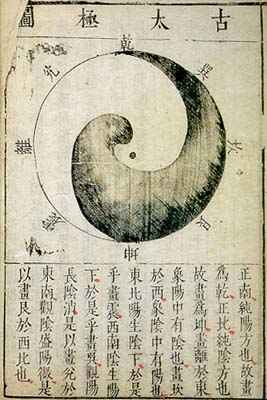 The Tao that can be talked about is not the eternal Tao. Nevertheless, people try to talk about it all the time.
The Tao that can be talked about is not the eternal Tao. Nevertheless, people try to talk about it all the time. Such is human nature, which, ironically, is the very thing Taoism is designed to eradicate. Taoism, as a belief system, has undergone dramatic mutations over the course of millennia, but its main tenet has remained remarkably unchanged—that humans can achieve enlightenment only by "non-striving" and "non-doing," using quiet contemplation to eventually abandon earthly concern and become one with the universe. Taoism was founded somewhere between 1000 B.C. and 300 B.C. It officially began when a philosopher named Lao Tzu wrote a book called the Tao-te-Ching, or "The Book of the Way and Virtue." Lao Tzu is the founder of Taoism in much the same way that Jesus Christ is the founder of Christianity, i.e., he may or may not have been a real historical figure, and he may or may not have said the things that were attributed to him. The Tao-Te-Ching is a short book of profundities that you either get or you don't. For instance: Tao can be talked about, but not the Eternal Tao. Names can be named, but not the Eternal Names. As the origin of heaven and earth, it is nameless. As "the Mother" of all things, it is nameable. So, as ever hidden, we should look at this inner essence; as always manifest, we should look at its outer aspects. In addition to its extremely esoteric subject matter, the Tao-Te-Ching is notoriously difficult to translate from its original Chinese. The word Tao means "path" or "way." Everything else is up for grabs. Consider the following translation of the same passage from above: The Tao that can be understood cannot be the primal, or cosmic, Tao, just as an idea that can be expressed in words cannot be the infinite idea. And yet this ineffable Tao was the source of all spirit and matter, and being expressed was the mother of all created things. Therefore not to desire the things of sense is to know the freedom of spirituality; and to desire is to learn the limitation of matter.
There are ways but the Way is uncharted; There are names but not nature in words: Nameless indeed is the source of creation, but things have a mother and she has a name. The secret waits for the insight of eyes unclouded by longing; Those who are bound by desire see only the outward container. Taoism began as a philosophy. The basic premise was that the universe is constructed of two polar forces. Yin and yang represent a wide range of opposites—female and male, receptive and projective, responding and initiating, passive and forceful, stillness and motion. In addition to the Tao-Te-Ching, the other major text of Taoism is the I-Ching. The i-Ching predates the Tao-Te-Ching and the formal establishment of Taoism by at least a couple of centuries. The i-Ching, aka the "Book of Changes," was an traditional oracle, often used for fortune-telling. The book sets forth a model of reality based on the mingling of yin and yang.
At its most basic, all of the yin-yang opposites can be reduced one of three extremely important pairs of qualities:
At its heart, Taoism was about the interaction of yin and yang, which is believed to be the core of all existence. This distinguishes Taoism from virtually all of the world's major religions, which are almost universally concerned with some sort of personified deity or deities. The original thrust of Taoism was to explain the forces that shape existence, rather than resorting to an omnipotent figure with poorly delineated supernatural powers. Yin and yang were part of everything, including the human life force, known as chi.
The pure philosophical Taoism continued to focus on quieting the soul, meditating on the universe, and right-minded living. It became associated with the martial arts, healing practices like acupuncture, and other regimens designed to enhance longevity and even achieve immortality. A separate branch of religious Taoism evolved as a cluster of sects, with very cool names like the "Spiritual Treasure School," the "Dragon's Gate School" and the "School of Complete Reality." Some of these sects were just revamped folk religions, complete with traditional deities and cosmology. The most influential schools presented themselves as secret societies protecting the secrets of Taoist alchemy, such as the golden elixir of immortality. Some sects took the alchemy very literally, others used the language as colorful metaphor for the original concepts of philosophical Taoism. Other sects embraced Taoist alchemy as sexual ritual, focusing on how drinking and otherwise interacting with sexual fluids could ensure longevity (or at least ensure you have fun not achieving longevity).
As Chinese Taoism suffered setbacks however, the West was discovering the philosophy. Scientists and philosophers were surprised to find that Taoism contained extraordinary parallels to the newly discovered sciences of chaos theory and quantum physics, while the i-Ching displayed some suspicious correspondences to human DNA structure.
The Tao of Jeet Kun Do, by Bruce Lee, is by far the coolest of these, but the most successful is also by far the least cool. The Tao of Pooh has sold more than 2 million copies and thus takes the lion's share of blame for the heinous practice of sticking "The Tao of" in front of everything. Oh, bother.
|
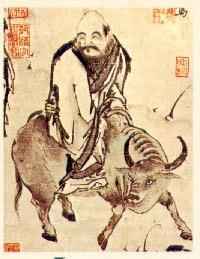 The same... And yet, not quite. Every translator brings his or her own set of assumptions to the job, which apply to concepts that English sometimes lacks words for.
The same... And yet, not quite. Every translator brings his or her own set of assumptions to the job, which apply to concepts that English sometimes lacks words for.

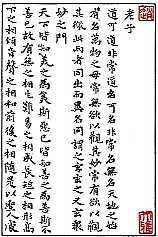 It was a tough sell. Religion without a deity is like a TV show about Clark Kent without the red cape and the big 'S'. (Wait, you're telling me they have that? Weird.) Over the course of time, Taoism split into two major schools, each serving a different constituency.
It was a tough sell. Religion without a deity is like a TV show about Clark Kent without the red cape and the big 'S'. (Wait, you're telling me they have that? Weird.) Over the course of time, Taoism split into two major schools, each serving a different constituency.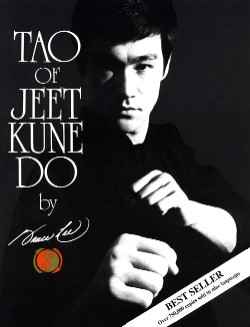 Taoism has been practiced continually in China since its founding, although it had to compete with other religions, including
Taoism has been practiced continually in China since its founding, although it had to compete with other religions, including 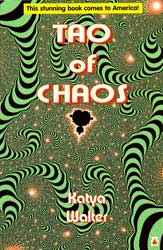 This led to the publication of a few high-minded studies, such as The Tao of Physics. These serious and insightful books sold so well that they spawned a long series of unholy derivatives, such as The Tao of Chaos, The Tao of Leadership (for busy Taoist CEOs), The Tao of Enron (for CEOs who failed to get the point of the other one), The Tao of Sexology (explicit XXX secrets of the ancient sages), The Tao of Sports (in case your worship of the local team leaves you feeling somehow unfulfilled), The Tao of Watercolor (if
This led to the publication of a few high-minded studies, such as The Tao of Physics. These serious and insightful books sold so well that they spawned a long series of unholy derivatives, such as The Tao of Chaos, The Tao of Leadership (for busy Taoist CEOs), The Tao of Enron (for CEOs who failed to get the point of the other one), The Tao of Sexology (explicit XXX secrets of the ancient sages), The Tao of Sports (in case your worship of the local team leaves you feeling somehow unfulfilled), The Tao of Watercolor (if